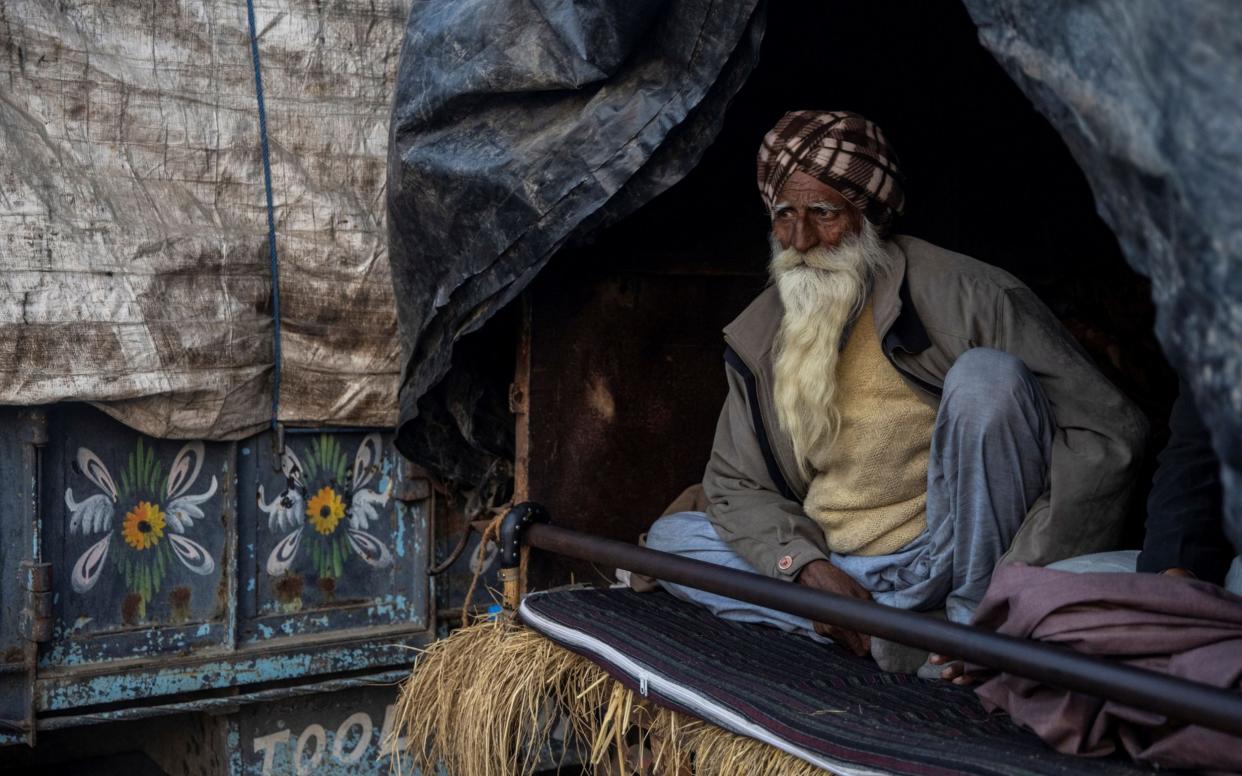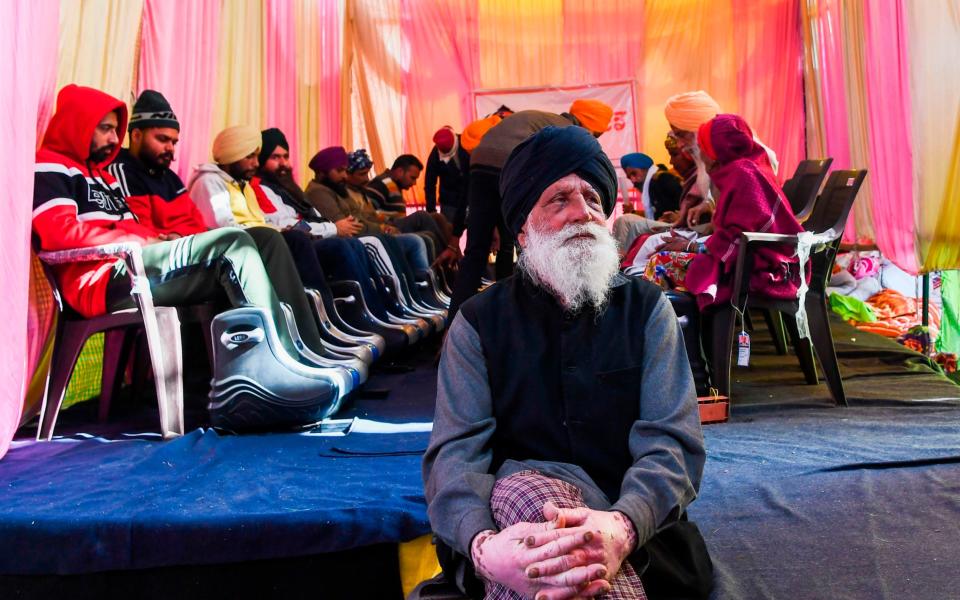25 Indian farmers die during protests as Modi visits temple in sop to angry Sikh farmers

- Oops!Something went wrong.Please try again later.
At least 25 Indian farmers have died during protests against controversial legislation, as Prime Minister Narendra Modi attempted to diffuse growing tensions by making a surprise visit to a Sikh temple in New Delhi on Sunday.
Fourteen deaths have been attributed to exposure to the cold, as approximately 500,000 farmers - most of whom are Sikh - continue to sleep in their tractors and blockade roads outside Delhi, despite temperatures dropping to 3°C at night.
Ten death occurred in road accidents as farmers travelled to Delhi from the surrounding states of Punjab and Haryana, while an eminent Sikh priest from Haryana shot himself in protest at the new legislation.
The farmers say they will continue to occupy the streets, causing ongoing disruption to food supplies in India’s capital, until the proposed farm bills are repealed.
On Monday, the protesting farmers are undergoing a day-long hunger strike, while union leaders announced plans to occupy toll booths surrounding Delhi from December 25.

Farmers claim the proposed Farm Bills will remove fixed-price guarantees for crops in government markets and instead, force them to negotiate the sale of their produce to the private sector.
Farmers fear a monopoly by several large corporates means the price of their crops will fall, while they will also lose the cushion government guarantees provided against price fluctuations on the open market.
As two-thirds of Indians are employed in agriculture the farmers are largely enjoying the support of the nation and on November 26, 250 million Indians took part in a nationwide strike in support of the farmers.
Lives, and not just livelihoods, are also at stake. In Punjab, the price of land and farm supplies has risen by 300 percent since 2016, while crop prices have risen by just 19 percent.
This has squeezed farmers’ profits and resulted in many smallholders - 86 percent of Indian farmers own less than two hectares of land - racking up thousands of pounds of crippling debt.
Stuck in a cycle of unpayable debt, Punjab is currently experiencing a dramatic surge in suicides among its farmers.
Sikhs constitute the majority of the population in Punjab and they are leading the protests in Delhi.
Amidst growing criticism from Sikhs worldwide, Mr Modi made a surprise visit to the Gurudwara Rakab Ganj Sahib in New Delhi on Sunday.
Mr Modi offered prayers and invited fellow worshippers a rare opportunity to take photographs with him in an attempt to build bridges with the Sikh community.
Five rounds of talks between Mr Modi’s Bharatiya Janata Party and farmers’ union leaders have proved inconclusive, with farmers’ refusing to compromise on anything other than a total rollback of the Farm Bills.
Further talks are expected this week, while farmers have threatened to occupy streets in New Delhi next if their demands are not met.

